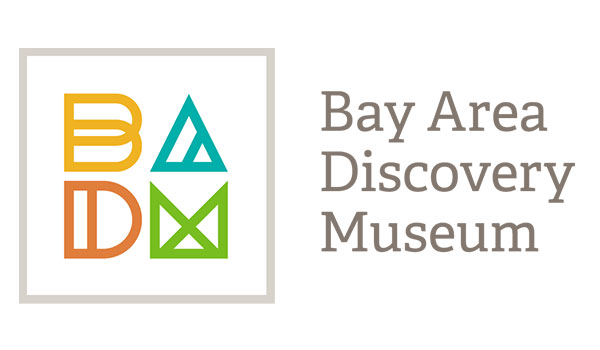New findings from the Center for Childhood Creativity explore how adults can introduce STEM concepts to children age 0-8
Sausalito, CA – New findings from the Center for Childhood Creativity (CCC) at the Bay Area Discovery Museum (BADM) explore how parents, teachers, and other adults can help support the youngest learners. In the CCC’s latest position paper, The Roots of STEM Success: Changing early learning experiences to build lifelong thinking skills, expert authors provide research-backed advice for sharing science, technology, engineering, and math (STEM) experiences with children aged 0-8. The paper also includes practical tips for how adults can introduce children to these experiences as part of daily life.
Co-authors Elizabeth Rood, Director of the CCC, and Helen Hadani, the CCC’s Director of Research, found that this early focus is necessary because of how young children are when they begin to develop the thinking skills they’ll carry with them for life–and how often this period of development goes unsupported. Children are capable of STEM thinking starting before their first birthday, though too many won’t get introduced to STEM concepts until later in elementary school. The Roots of STEM Success provides practical guidance for how parents can take advantage of the foundational early learning years to encourage their child’s natural curiosity toward STEM learning.
Six key findings suggest that STEM experiences can and should happen in more places and in more ways than a traditional lesson in a classroom. By playing with their kids and asking questions or taking trips to a local museum, parents can share STEM with their children in an engaging way. Ultimately, STEM success is attributed to more than content knowledge. It also comes down to how children feel about learning–their mindset when facing challenges, their comfort when presented with new information, and their disposition toward inquiry and analysis.
By getting parents involved in STEM education–rethinking what it is, where it can happen, and who it’s for–we can prepare our youngest learners with the skills they’ll need for a successful future.
To read The Roots of STEM Success: Changing early learning experiences to build lifelong thinking skills, please click here.
Interview Availability
Elizabeth Rood, Ed.D, co-author of The Roots of STEM Success: Changing early learning experiences to build lifelong thinking skills, and Director of the Center for Childhood Creativity is available for media interviews regarding the paper and its key findings. In addition to her work at the CCC, Rood has more than 15 years of experience in formal education, working as a teacher, principal, and executive director in small urban schools focused on personalization, equity, and progressive education.
About the Center for Childhood Creativity
The Center for Childhood Creativity (CCC) is the Bay Area Discovery Museum’s research division established in 2011 to bridge the gap between academic research in the fields of neuroscience, education, psychology, and creativity studies with the practitioners charged with raising a generation of future innovators. The CCC works at a national scale to advance our understanding of creativity development and advocate for its critical importance. CenterForChildhoodCreativity.org
About the Bay Area Discovery Museum
The Bay Area Discovery Museum is a children’s museum in Sausalito that applies the latest research to develop early learning experiences that inspire and build creative problem solving skills in children, transforming the way they learn and the way they contribute to the world. As an independent 501(c)(3) nonprofit organization, the museum provides STEM-focused, inquiry-driven experiences that develop creativity and conceptual thinking, critical components of problem solving. BayAreaDiscoveryMuseum.org

